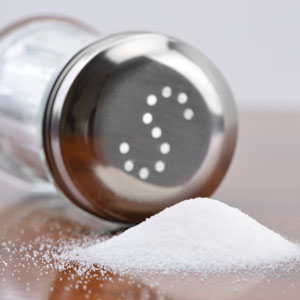Sodium reduction in ready meals
- Like
- Digg
- Del
- Tumblr
- VKontakte
- Buffer
- Love This
- Odnoklassniki
- Meneame
- Blogger
- Amazon
- Yahoo Mail
- Gmail
- AOL
- Newsvine
- HackerNews
- Evernote
- MySpace
- Mail.ru
- Viadeo
- Line
- Comments
- Yummly
- SMS
- Viber
- Telegram
- Subscribe
- Skype
- Facebook Messenger
- Kakao
- LiveJournal
- Yammer
- Edgar
- Fintel
- Mix
- Instapaper
- Copy Link
Posted: 2 January 2014 | Martin G. Wilkinson, Department of Life Sciences, University of Limerick | No comments yet
Daily salt intake, mainly in the form of sodium chloride, is obtained from either discretionary (salt cellar) or nondiscretionary sources (processed ready meals, snack foods, restaurants and takeaways). Consumers are now obtaining the vast majority, around 75 per cent, of their sodium intake from non-discretionary sources such as ready meals, many of which may be high in salt1,2. It has been reported that consumption of ready meals may contribute up to 70 – 80 per cent of an excess dietary salt intake5. Consequently, health and regulatory agencies have become concerned with the high intake of sodium from frozen or chilled ready meal products. The principal public health issue associated with an excess daily salt intake (about 10 – 12 grams) is the increase in blood pressure (≥ 140mmHg systolic or ≥ 90 mmHg diastolic) leading to hypertension and cardiovascular disease (CVD)3,4.


Public health agencies are currently endeavouring to reduce the adult daily intake to six grams of salt. However, consumers are increasingly purchasing ready meals as a result of lifestyle pressures, leaving less time available to cook meals in the home. A key driver of growth in this sector is the availability of a range of frozen or chilled products ranging from ethnic dishes such as Indian, Italian and Mexican to more conventional products such as Cottage Pie and Vegetable Soups. All of these products are quite complex to manufacture and are typically formulated using blends of meat, sauce, cheese, pasta, rice, salt and vegetables, with added flavouring ingredients such as spices and herbs; most of which contain sodium, generally in the form of salt. Currently, ready meal manufacturers are under pressure to reduce the sodium content in their product range. In Ireland, the Department of Agriculture, Food and the Marine (DAFM) funded two large multi-institutional research projects under the Food Institutional Research Measure (FIRM) one of which dealt with salt reduction in frozen ready meals and the other with salt reduction in chilled ready meals. This programme was co-ordinated from the University of Limerick and involved a consortium of academic, industrial and state research partners, each of which provided a particular skill set and research expertise.
The industrial research partners included a major ready meals manufacturer and a supplier of spices, herbs and flavour ingredients. This article attempts to summarise the research approach taken and the key outputs and findings from both projects.
Consumer awareness of salt issues associated with ready meals
The project initially conducted a survey of Irish consumer’s perception of salt content of ready meals and found that it was overwhelmingly negative, with 76 per cent of respondents considering ready meals to be high in sodium. Interestingly, 75 per cent of consumers would opt for a chilled meal over a frozen meal as they were considered healthier. Only six per cent of respondents regularly checked the salt / sodium contents of the ready meals and many were unaware of the hidden salt contents within these meals. Despite this, consumers regularly purchased ready meals despite their health concerns regarding these products5.
The rest of this article is restricted - login or subscribe free to access


Why subscribe? Join our growing community of thousands of industry professionals and gain access to:
- bi-monthly issues in print and/or digital format
- case studies, whitepapers, webinars and industry-leading content
- breaking news and features
- our extensive online archive of thousands of articles and years of past issues
- ...And it's all free!
Click here to Subscribe today Login here








